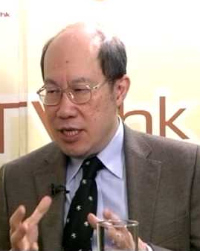
Practical information
Chinese President and Commander-in-Chief Xi Jinping has taken less than six months to consolidate his status as China's New Helmsman. He has also taken a tough line toward the projection of Chinese power on the world stage. Dr. Willy Lam will talk about Xi's priorities in realizing what the 59-year-old supremo calls "the China Dream," which encompasses both economic prosperity and military superiority -- as well as the perpetuation of the Chinese Communist Party as the country's "perennial ruling party."
Dr. Willy Lam is an Adjunct Professor in the History Department and the Center for China Studies, Chinese University of Hong Kong. He is also Senior Fellow at the Jamestown Foundation, a foreign-policy think tank in Washington DC. He has written six books about China, including "Chinese Politics in the Hu Jintao Era." Willy specializes in Communist Party politics, Chinese foreign policy, the People's Liberation Army, and the country's economic and political reforms.
Chair: Françoise Nicolas, Director, Center for Asian Studies, Ifri
Other events

Paris Naval Conference 2025: Naval Power in support of Maritime Economy
This third edition of the Paris Naval Conference (CNP), bringing together high-level speakers from the military, industry and academia, aims to address the issues of securing the maritime economy for the world's navies.





